Art
Blood Painting
In Culver City, California, artist Illma Gore is painting a canvas with human blood to protest the upcoming inauguration of Donald Trump. She's working with 20 pints of blood donated by artists, musicians, and activists.
I'm sensing that weird stuff people do to protest Trump will be a prolific theme in weird news during the next four years.
More info: abc7.com
Posted By: Alex - Fri Jan 13, 2017 -
Comments (7)
Category: Art, Politics, Riots, Protests and Civil Disobedience
Niki de Saint Phalle Gun Art
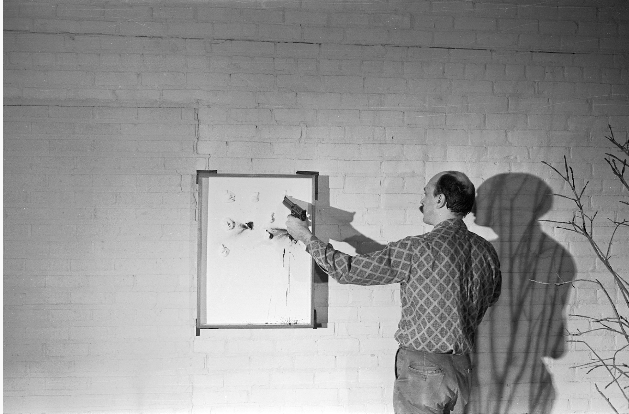
We've discussed much gun-based art here before--artists shooting themselves or other objects--but I do not believe we have yet covered this instance by Niki de Saint Phalle.
A white canvas with bags of paint concealed beneath was to be fired upon, releasing the paint in random patterns. But the project proved more intractable than anticipated.
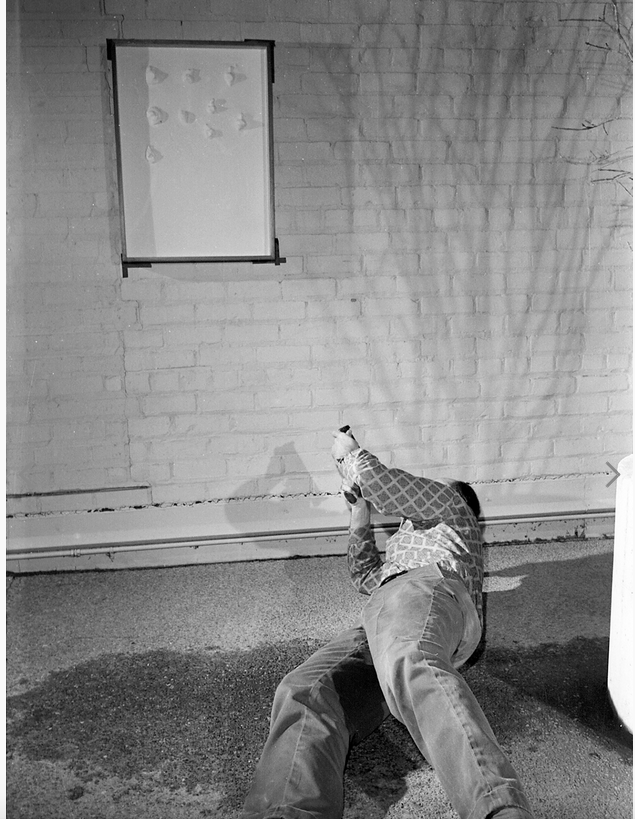
Full story here.
Posted By: Paul - Sat Dec 31, 2016 -
Comments (2)
Category: Art, Avant Garde, Guns, 1960s
A Refusal
From the Hyperallergic blog:For quite a while I've been engaged in a similar artistic endeavor. However, I've taken it one step further by not posting to Facebook at all. I call my project "An Absence."

Posted By: Alex - Mon Dec 12, 2016 -
Comments (3)
Category: Art
Miss Mona Lisa 1958
February 1958: A jury of "celebrated painters" convened for the Mona Lisa Grand Prix awarded the title of "Mona Lisa 1958" to Luce Bona. What made the award slightly unusual is that Bona hadn't been a contestant. The judges just happened to see her as she was walking by outside and decided she was the one. At least, that was the story reported in the press.

Louisville Courier-Journal - Feb 19, 1958
Here's the winner from the previous year, Maria Lea. Apparently the gimmick of this contest was that the winner posed in a picture frame, which made her somehow like the Mona Lisa.

The Lincoln Star - Jan 13, 1957
Later in 1958 a jury of French mystery writers selected Luce Bona as the girl with the "Most Devilish Eyes." I'm assuming she was actually entered into that contest.
I can't find any references to Luce Bona after 1958. Perhaps she gave up modeling, despite such a promising start.
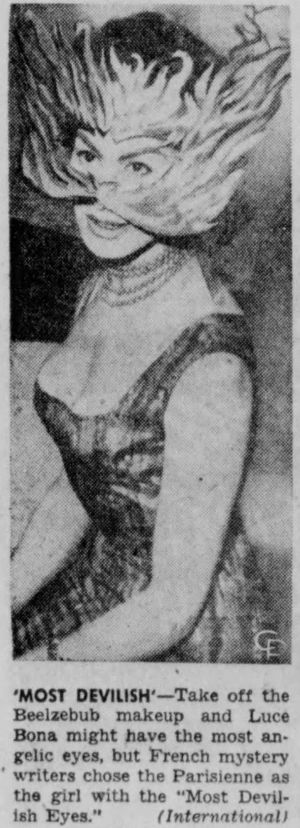
Wilmington News Journal - Apr 12, 1958

Posted By: Alex - Mon Dec 05, 2016 -
Comments (8)
Category: Art, Awards, Prizes, Competitions and Contests, Beauty, Ugliness and Other Aesthetic Issues, 1950s
Destructivist Art
In September 1966, the first ever "Destruction in Art Symposium" was held in London, highlighting the work of the self-styled Destructivists. Basically, they destroyed things and called it art.LA Times staff writer Robert Toth delivered the following report from the Symposium (LA Times - Sep 11, 1966):
But to justify slaughter of a flock of chickens, more pretentious words are demanded. Said one abortive chicken killer, Ralph Ortiz:
"Destructivist art gives our destructive instinct its essential expression while coming to terms with destruction's most primitive maladaptive aspects — aspects that ordinarily would prove to work for the destruction of the species rather than its survival."
After those words, which seem to mean emotional release for him, the American "artist" looked absurd when the law intervened to prevent the massacre (which, incidentally, was to have bloodied 10 elegantly tuxedoed men as an added attraction).
Ortiz came up with a lone canary but no, not that either, said the RSPCA inspector.
Could he let the bird out the window? No again, for it was a cold night.
The frustrated Ortiz settled for showing a film of a chicken-killing, but not before the coup de grace was administered.
Why not stomp a caterpillar, suggested an onlooker. "I'm not a caterpillar-killer," huffed the affronted artist.
His less ambitious colleagues have fared better. One broke a chair to smithereens. Another created a hole with an ordinary shovel, and promptly priced it at $350.
Ortiz did, however, help axe a piano apart.
In 1996, Raphael Ortiz (he was no longer calling himself Ralph) re-enacted his piano-axing performance at New York's Whitney Museum of American Art... but with one small change. According to NY Times critic Michael Kimmelman, he was now accompanied by "a woman in pigtails and ruffled apron standing on a ladder dropping eggs into a bucket and chanting Humpty Dumpty."
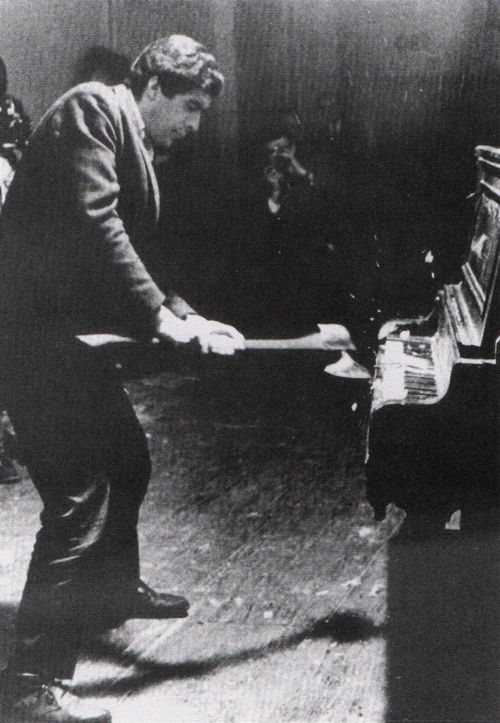
Ralph Ortiz destroying a piano — 1966
Incidentally, literary critic Robert Grossmith has noted that one of the reasons for the obscurity of the Destructivist Art movement is that "not a single Destructivist work of art exists. There are no primary sources. Not a solitary Destructivist novel, poem, play, story, painting, sculpture, film, dance or piece of music was ever produced or, if produced, allowed to survive. In fact if a Destructivist work of art was to turn up today, its very existence would automatically disqualify it from being considered as genuinely Destructivist. There can in short never be a Destructivist work of art, in any accepted sense of the word ‘be’."
Posted By: Alex - Thu Nov 17, 2016 -
Comments (9)
Category: Art, Performance Art, 1960s
Couch Potato Sculpture
I'm assuming all WU-vies will want to shell out $345.00 for this figurine as the perfect Xmas gift for that lazy brother-in-law, son, uncle, or father.
Home page here.
Posted By: Paul - Sat Nov 05, 2016 -
Comments (1)
Category: Art, Food, Hygiene, Parody
Least-Authentic Native-American Motifs Ever
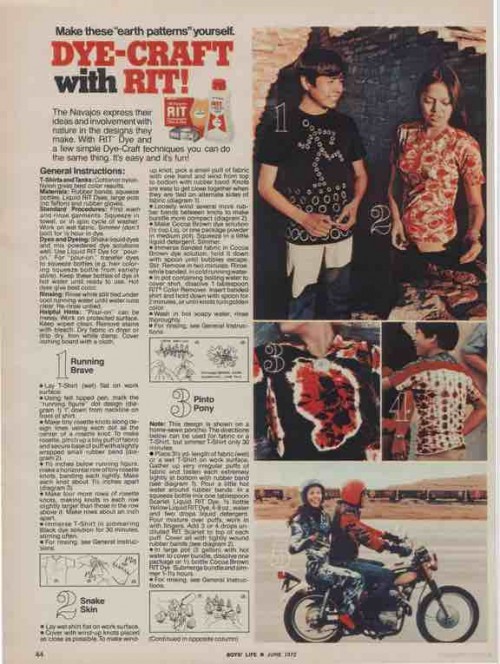

Original ad here.
Posted By: Paul - Mon Oct 17, 2016 -
Comments (2)
Category: Art, Fashion, Hobbies and DIY, 1970s, Native Americans
Dessert-Smashing Artist
Artist Mar Cuervo has created an art installation in which she destroys various desserts (cookies, marshmallow peeps, chocolate rabbits, cupcakes, etc.) by smashing them with her hand. She explains: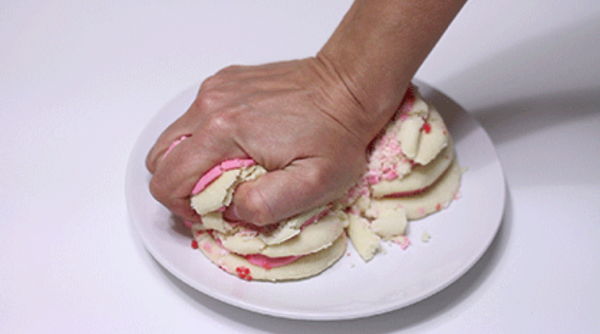
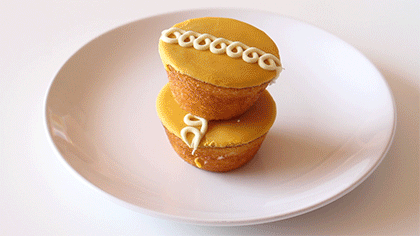
Gallagher comes to mind as one possible source of inspiration. Perhaps also that woman who smashes her face into bread.
via konbini.
Posted By: Alex - Fri Sep 23, 2016 -
Comments (1)
Category: Art, Food
Mystery Illustration 31
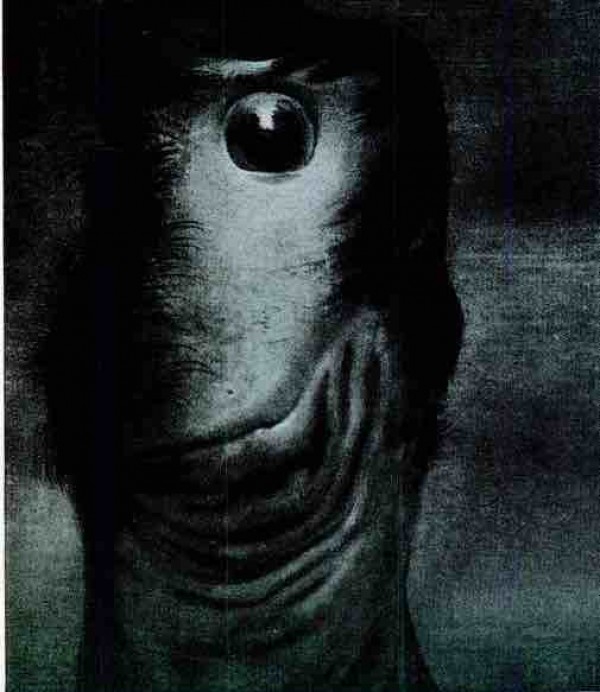
This portrait is intended to depict what mythical deity? Hint: not an Asian religion.
The answer is here.
Posted By: Paul - Mon Sep 19, 2016 -
Comments (11)
Category: Art, Gods, 1950s
Beer Can Prayer Wheels
Don't throw out your old beer cans. Use them to generate prayers: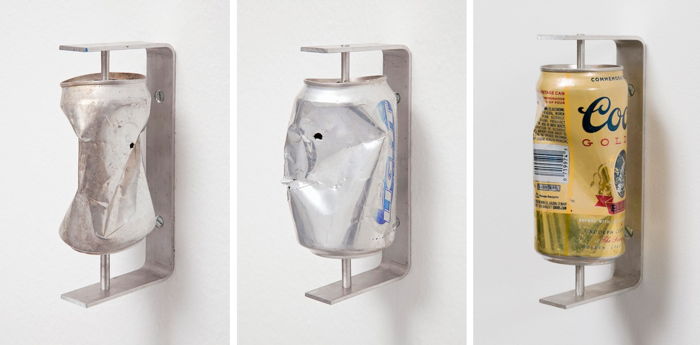
image source: Box Vox
— Artspace.com
Several years ago I posted about another creative way to recycle beer cans: Home heating with beer cans.
Posted By: Alex - Thu Aug 11, 2016 -
Comments (4)
Category: Art

| Who We Are |
|---|
| Alex Boese Alex is the creator and curator of the Museum of Hoaxes. He's also the author of various weird, non-fiction, science-themed books such as Elephants on Acid and Psychedelic Apes. Paul Di Filippo Paul has been paid to put weird ideas into fictional form for over thirty years, in his career as a noted science fiction writer. He has recently begun blogging on many curious topics with three fellow writers at The Inferior 4+1. Contact Us |




